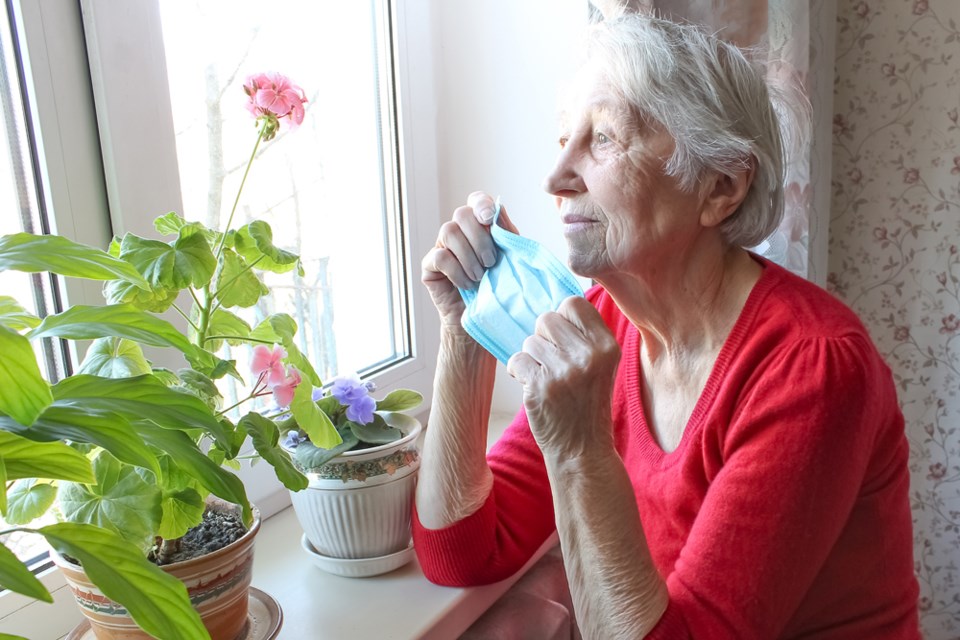Caregiving in a COVID-19 reality.
Caregiving for a friend or family member is one of the most important, if not one of the most essential services performed in our society.
Without the caregiving efforts of the amazing women and men who look after others, there would be incredible hardships for the economy, for seniors and others, for communities and the list goes on.
The role of caregiving saves the health-care system millions of dollars, keeps those needing care from accessing expensive services (emergency, long-term care beds), and often provides superior care for seniors. While, at the best of times caregiving is challenging, during COVID-19 there is much more for the caregiver to cope with.
According to Family Caregivers of British Columbia: “There are over one million people providing unpaid care for adult family members and friends in British Columbia.”
An unpaid caregiver is a person who provides emotional or practical support for an adult family member or friend.
A recent McMaster University Optimal Aging Portal report on caregiving states that besides daily caregiving such as providing physical care (feeding, dressing and bathing) a caregiver might work with a medical team; accompany older adults to medical appointments; give and track medication; co-ordinate home and community care, primary care and specialty care; advocate to access the necessary care; keep family and friends informed; and make legal and financial arrangements.
Caregiving can be rewarding and stressful at the same time. In North Shore Community Resources Society’s publication Resource Guide for Family Caregivers, it states that, “family caregiving can be very rewarding. Caring for a loved one can bring families closer and enhance relationships. It can feel good to make it possible for a loved one to stay in their own home, and it can be rewarding to know that your loved one is doing what they want to do. At the same time, family caregiving can also be very stressful. Caring for a family member can also separate families, disrupt relationships, be exhausting and stressful, and involve some difficult decisions.”
However, in the COVID-19 reality, caregiving has become more challenging and made the lives of both the caregiver and those they care for more complex. Caregivers must now adapt to newer responsibilities while caring for their family member or loved one. They must, as well as following guidelines prescribed for the general population (washing hands frequently, physical distancing and using personal protection equipment), vigilantly keep the home safe and infection free, disinfect more frequently and make sure that other in-home care providers who work with their loved ones are following the guidelines necessary to keep them safe.
On a personal level, as the McMaster report states, “Caregivers have been experiencing increased stress, burnout, depression, anxiety and isolation experienced since the beginning of the pandemic.”
Like most of us who have experienced difficulty in obtaining basic goods it has been more of a challenge for caregivers who can’t rely on people to step in to help with their loved one while they shop or get support for their own personal issues. Because of the distancing restrictions, caregivers may not be able to get assistance from their broader networks of family and friends.
Since the pandemic there has also been a reduction or a change in social services available for in-person support for caregivers. However, organizations on the North Shore that provide these services have done an excellent job in pivoting their programs to meet the need. Strategies include virtual programming, drop-off programs and phoning services. The North Shore Caregiver Support Program offers many programs online and by telephone for personal care, referrals, group support and consultations. They can be reached at 604-985-7138.
Many other organizations on the North Shore can help with food delivery, getting you and your loved one to appointments, shopping, and mental health consultations.
Try the Seniors Directory 2020 published by NSCR and the North Shore News for access to those organizations. The guide is online here and at many organizations across the North Shore – or simply phone 604-982-3302 to find out where you can get a hard copy.
Caregivers are carrying an extra burden these days – take time to recognize these people with a phone call, thoughtful card or email thanking them for the incredible work they do.
Margaret Coates is the co-ordinator of Lionsview Seniors’ Planning Society. Ideas for future columns are welcome. Click here to send Margaret an email.



